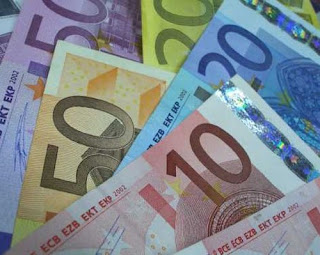7 Out of 91 European Banks Fail Toothless (Read: Useless) Stress Tests
Courtesy of Jr. Deputy Accountant
First the results.
NYT:
Seven of Europe’s 91 largest banks would struggle to survive an unexpected decline in economic growth or a sharp deterioration in the value of European government bonds, and will need to raise more capital, regulators said Friday in releasing results of closely watched bank stress tests.
Banks to flunk were Hypo Real Estate, a bank based in Munich that is already government-owned after a bailout, ATEBank of Greece and five Spanish savings banks.
Several other banks passed the test, but narrowly enough that they may also face market pressure to increase their reserves. That group included Postbank, one of Germany’s biggest publicly traded banks, which is 25 percent owned by Deutsche Bank.
Like our own stress tests last year, European regulators came up with a few different scenarios, one of which was supposed to mirror sovereign default. The problem being it doesn’t exactly do that.
In the last scenario, banks will publish their estimated losses on sovereign debt held in their trading book as well as “additional impairment losses on the banking book” that they may suffer after a sovereign debt crisis, according to the document dated July 15.
Under accounting rules, banks have to adjust the value of sovereign bonds held in the trading book according to changes in market prices, said Konrad Becker, a financial analyst at Merck Finck & Co. in Munich. For government debt held in the banking book, lenders must write down their value only if there is serious doubt about a state’s ability to repay its debt in full or make interest payments, he said.
The sovereign-shock scenario doesn’t assume a European nation will default, said a person with knowledge of the matter, who spoke on the condition of anonymity because the information is private. Instead, it will assume that rising government-bond yields will push up borrowing costs, spurring defaults in the private sector that would lead to losses in lenders’ banking books, said the person.
Ambrose Evans-Pritchard already called the tests toothless over at the Telegraph. I say that’s being kind.
Again, when we did the whole stress test thing last year the numbers were strange and scenarios incredibly optimistic. Since Treasury had to act sketchy about what they were up to, the entire thing was terribly obscure to anyone but the geniuses who were doing the testing.



